For businesses in Singapore, bad debt is more than just a number on a balance sheet — it’s a direct threat to cash flow, operational stability, and long-term growth. Whether you’re an SME owner, a property manager, a law firm partner, or a corporate finance professional, unpaid debts can derail plans and drain resources.
The good news? With the right strategies — grounded in Singapore law and industry best practices — you can significantly improve your debt recovery rates without damaging client relationships.
This article explores the top strategies for bad debt collection in the Singapore market, tailored to the needs of SMEs, law firms, landlords, telcos, utilities, medical providers, and corporate professionals.
Understanding Bad Debt in the Singapore Context
What is Bad Debt?
Bad debt refers to amounts owed by customers, clients, or tenants that are unlikely to be collected through normal payment channels.
Common causes include:
- Financial hardship of the debtor
- Disputes over services or contracts
- Poor credit vetting before engagement
Why the Singapore Market is Unique
Singapore’s strong legal framework for debt collection provides both opportunities and constraints:
- The Protection from Harassment Act (POHA) ensures debtors are treated fairly.
- The Personal Data Protection Act (PDPA) governs how debtor information can be handled.
- Licensed collectors must comply with Credit Collection Association of Singapore (CCAS) guidelines.
The Challenges Businesses Face with Bad Debt Collection
- Time Drain — Chasing payments diverts staff from core tasks.
- Relationship Risk — Aggressive collection tactics can alienate valuable clients.
- Legal Compliance — A misstep can result in legal penalties or reputational harm.
📌 Example: A medical clinic in Singapore faced overdue bills from corporate clients. Aggressive follow-up risked losing referrals, but doing nothing meant losing thousands in unpaid fees.
Top Strategies for Bad Debt Collection in Singapore
1. Engage a Licensed Debt Collector Early
The earlier you act, the higher the chance of recovery. Licensed debt collector in Singapore bring expertise, legal knowledge, and negotiation skills to the table.
Why it Works:
- Avoids escalation into full legal disputes.
- Signals seriousness to the debtor.
- Ensures compliance with Singapore laws.
2. Conduct Pre-Engagement Credit Checks
Before onboarding clients or tenants, assess their financial reliability using credit reports and trade references.
Industry Example: Property managers can request proof of income and rental history to avoid high-risk tenants.
3. Use Structured Payment Reminders
Implement a tiered reminder system:
- Friendly reminder (before due date)
- Firm reminder (1–2 weeks overdue)
- Final notice before escalation
This gradual approach balances professionalism with urgency.
4. Offer Flexible Repayment Plans
Some debtors can’t pay the full amount at once. Flexible arrangements — such as installment plans — can secure recovery while maintaining relationships.
Singapore Context: Licensed agencies often facilitate such arrangements, ensuring they’re legally binding. Businesses prefer Info Capital for Singapore debt collection service because of its licensed status and proven recovery success
5. Leverage Legal Tools
When negotiations fail, Singapore offers several legal options:
- Letter of Demand (LOD) from a law firm
- Small Claims Tribunal for amounts up to $20,000 (or $30,000 with a written agreement)
- Court proceedings for higher-value disputes
6. Keep Meticulous Documentation
Maintain records of contracts, invoices, payment reminders, and correspondence. This evidence is essential if the matter proceeds to legal action.
7. Outsource Difficult Cases
If internal attempts stall, outsourcing to a licensed credit collection agency can boost recovery rates. They bring in negotiation skills, legal know-how, and debtor psychology expertise.
Industry-Specific Applications
For SMEs
Bad debt can cripple working capital. A combination of early intervention, structured reminders, and licensed collection support can prevent cash flow crises.
For Law Firms
Recovering unpaid legal fees demands tact. Professional collectors can act as neutral intermediaries to protect client relationships.
For Property Managers & Landlords
Quick action on overdue rent — coupled with legal processes like eviction notices — prevents long-term losses.
For Telcos & Utilities
High-volume overdue accounts require automated reminders backed by targeted collection for chronic defaulters.
For Medical & Dental Clinics
Sensitive handling preserves patient trust while still securing overdue payments.
Mini Case Study: Bad Debt Recovery Success
A Singapore-based B2B supplier had $150,000 in unpaid invoices across 12 clients. Their in-house finance team had exhausted standard follow-ups.
After engaging a licensed debt collection agency:
- 60% of debts were recovered within 90 days.
- Clients who settled early were offered continued business terms.
- The company implemented credit checks to reduce future risks.
Read more about:
Best Practices to Prevent Future Bad Debt
- Clearly outline payment terms in all contracts.
- Include late payment penalties.
- Use deposits or upfront payments for new clients.
- Regularly review credit terms for repeat customers.
- Train staff to recognize early warning signs of default.
Read more about:
Conclusion
Bad debt collection in Singapore requires a mix of legal knowledge, professional tact, and strategic action. Whether you’re managing an SME, a law firm, a property portfolio, or a healthcare practice, the right approach can help you recover funds without burning bridges.
By engaging licensed professionals, using preventive measures, and following structured processes, businesses can turn bad debt recovery into a competitive advantage.
Don’t let bad debts drain your business resources. Partner with Info Capital, a trusted licensed debt collection agency in Singapore. Our industry-specific expertise ensures ethical, legal, and effective recovery tailored to your needs. Contact us today to discuss your debt recovery strategy.
FAQs
Q1. What are the most effective strategies for bad debt collection in Singapore?
The most effective strategies include maintaining clear communication with debtors, offering structured repayment plans, engaging professional debt collection agencies, leveraging mediation services, and pursuing legal action when necessary. The right approach often depends on the debt size and the debtor’s willingness to cooperate.
Q2. Why is it important to work with a licensed debt collection agency in Singapore?
Licensed agencies follow ethical and legal frameworks set by Singapore’s debt collection regulations. Working with a licensed agency ensures compliance with laws, protects your business reputation, and improves recovery rates without resorting to harassment or unlawful practices.
Q3. How can businesses minimize the chances of accumulating bad debts?
Businesses can reduce risks by conducting credit checks before extending credit, drafting clear contracts with payment terms, monitoring accounts receivable closely, and acting quickly when payments are overdue. Preventive measures are as critical as recovery strategies.
Q4. When should a business consider outsourcing debt recovery to an agency?
Outsourcing is recommended when in-house efforts fail, communication with the debtor breaks down, or significant time and resources are being spent without results. Professional debt collection agencies like Info Capital bring expertise, legal knowledge, and negotiation skills that increase the likelihood of successful recovery.
Q5. Are legal proceedings a common strategy for bad debt recovery in Singapore?
Legal proceedings are usually a last resort when amicable solutions fail. Depending on the debt amount, businesses can file claims with the Small Claims Tribunals or pursue civil litigation. Agencies often advise clients on whether legal action is cost-effective and likely to succeed.
Q6. How do professional debt collectors ensure successful recovery while maintaining business relationships?
Experienced agencies adopt a professional and respectful approach, focusing on negotiation, mediation, and flexible repayment options. This strategy not only increases recovery rates but also helps preserve long-term client relationships, which can be vital for future business dealings.


